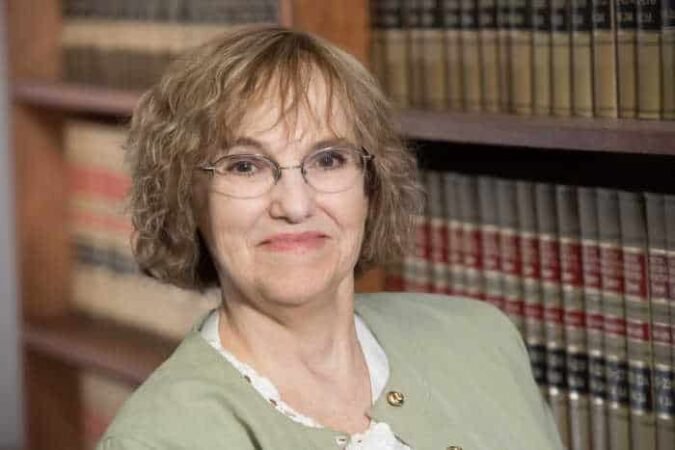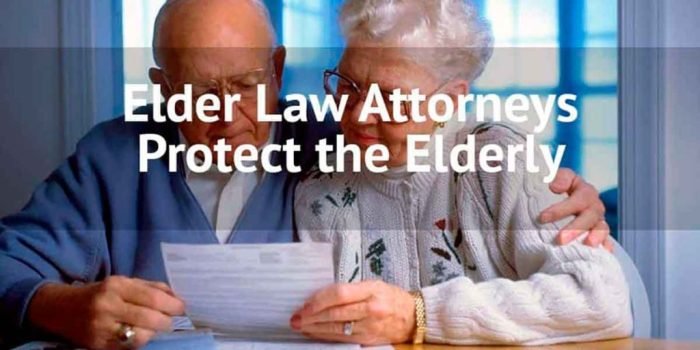
Navigating the complexities of aging can be challenging, especially when legal matters arise. Bucks County seniors and their families often face unique legal hurdles related to estate planning, Medicaid applications, long-term care, and guardianship. Understanding the intricacies of elder law is crucial for ensuring a smooth transition and protecting the well-being of loved ones. This guide provides essential information about finding and working with qualified Bucks County elder law attorneys, helping you navigate these critical issues with confidence.
From preparing comprehensive estate plans that minimize taxes and protect assets to securing Medicaid benefits for long-term care, the expertise of an experienced elder law attorney is invaluable. This resource explores the key areas of elder law practice in Bucks County, offering insights into the process, requirements, and potential challenges involved in each area. We’ll also examine how to choose the right attorney, ensuring you find a legal professional who understands your specific needs and can provide effective representation.
Understanding Bucks County Elder Law

Navigating the complexities of aging can be challenging, and for seniors in Bucks County, Pennsylvania, this often involves unique legal considerations. Bucks County, with its diverse population and mix of rural and suburban areas, presents a specific set of circumstances that impact the legal needs of its older residents. Understanding these unique challenges is crucial for ensuring the well-being and security of elderly individuals and their families.
Unique Legal Challenges Faced by Seniors in Bucks County
Bucks County’s aging population faces several distinct legal challenges. The high cost of living, particularly in certain areas of the county, can strain retirement resources and necessitate careful financial planning. Access to healthcare services, while generally good, can be unevenly distributed, leading to concerns about long-term care planning and affordability. Additionally, the increasing prevalence of elder abuse and financial exploitation requires vigilance and proactive legal protection. The blend of rural and suburban environments also means that access to legal resources may vary, creating disparities in the ability of seniors to obtain appropriate legal assistance.
Types of Elder Law Cases Commonly Handled in Bucks County
Elder law attorneys in Bucks County handle a wide range of cases. These frequently involve estate planning, encompassing wills, trusts, and power of attorney documents designed to protect assets and ensure smooth transitions of property after death. Medicaid applications, a complex process requiring meticulous documentation, are another significant area of practice. Guardianship and conservatorship cases arise when seniors are no longer able to manage their own affairs, necessitating court intervention to protect their well-being and finances. Cases involving long-term care planning, addressing the financial and legal aspects of nursing home placement, are also common. Finally, disputes regarding elder abuse or undue influence on elderly individuals are unfortunately becoming increasingly prevalent.
Examples of Common Elder Law Concerns in Bucks County
Estate planning is crucial for preserving family legacies and ensuring assets are distributed according to an individual’s wishes. This includes drafting wills to specify inheritance distribution, establishing trusts to manage assets for beneficiaries, and creating durable powers of attorney to authorize others to handle financial or healthcare decisions. Medicaid applications are often necessary to secure funding for long-term care, and navigating the complex eligibility requirements requires expertise. Guardianship may become necessary when a senior is no longer capable of making sound decisions, requiring a court-appointed guardian to oversee their care and finances. For example, a family might need to seek guardianship for a parent suffering from dementia who is unable to manage their finances or make informed healthcare choices.
Differences Between Elder Law and Other Related Legal Fields
Elder law differs from other legal fields in its holistic approach. While it overlaps with areas like estate planning, probate, and healthcare law, elder law focuses specifically on the unique needs and vulnerabilities of older adults. It integrates legal, financial, and healthcare considerations to provide comprehensive solutions. For example, an estate planning attorney may draft a will, but an elder law attorney will also consider the implications of that will on Medicaid eligibility for long-term care. Similarly, a probate attorney handles the administration of an estate after death, but an elder law attorney can advise on proactive estate planning to minimize probate costs and complications.
Comparison of Elder Law Services
| Service Type | Description | Benefits | Potential Costs |
|---|---|---|---|
| Estate Planning | Wills, Trusts, Powers of Attorney | Protects assets, ensures wishes are followed | Varies depending on complexity |
| Medicaid Planning | Assistance with applications and asset protection | Secures funding for long-term care | Hourly or flat fee |
| Guardianship/Conservatorship | Legal representation in court proceedings | Protects vulnerable seniors | Hourly rates, court costs |
| Long-Term Care Planning | Advice on nursing home placement and funding | Minimizes financial burden | Hourly or retainer fees |
Finding and Evaluating Bucks County Elder Law Attorneys
Choosing the right elder law attorney is crucial for navigating the complexities of elder care planning and legal matters. A skilled attorney can provide invaluable guidance and protection for you and your loved ones. This section Artikels key considerations when selecting an attorney in Bucks County.
Qualities to Seek in a Bucks County Elder Law Attorney
Selecting an attorney involves careful consideration of several essential qualities. Beyond legal expertise, consider their communication style, responsiveness, and overall approach to client care. A compassionate and understanding demeanor is particularly important when dealing with sensitive family matters. Furthermore, a strong reputation within the Bucks County legal community, evidenced by positive client testimonials and professional affiliations, is a reassuring indicator of competence and ethical practice. Finally, assess the attorney’s accessibility and their willingness to explain complex legal concepts in clear, understandable terms.
Importance of Experience and Specialization in Elder Law
Experience and specialization are paramount when choosing an elder law attorney. Elder law is a specialized field requiring in-depth knowledge of various areas, including Medicaid planning, estate planning, long-term care, and probate. An attorney with extensive experience in these areas will possess a nuanced understanding of the relevant laws and regulations, enabling them to develop effective strategies tailored to your specific circumstances. Years of practice translate to a broader range of experience in handling diverse cases, resulting in more effective representation and better outcomes. Choosing a specialist ensures you receive the highest level of expertise and focused attention.
Questions to Ask Potential Attorneys During Consultations
Prior to retaining an attorney, a consultation is essential to assess their suitability. It’s important to inquire about their experience with cases similar to yours, their fee structure, and their approach to case management. Additionally, clarifying their communication protocols and the expected timeline for completing your legal matters is crucial. Finally, asking about their familiarity with local resources and support networks in Bucks County can demonstrate their commitment to providing comprehensive client care. For example, you might ask about their experience with specific Medicaid applications or their knowledge of local nursing homes.
Comparing Fees and Services of Different Attorneys
Comparing attorneys’ fees and services requires a methodical approach. Don’t solely focus on the lowest price; consider the value proposition offered by each attorney. Analyze the scope of services included in their fees, the attorney’s experience and reputation, and the anticipated time commitment for your case. A detailed comparison of these factors will help you make an informed decision that balances cost and quality. For example, one attorney might offer a flat fee for a specific service, while another might charge hourly rates. Thoroughly review the fee agreements to understand the implications of each pricing model.
Comparison of Attorney Qualifications, Experience, and Fees
| Attorney Name | Years of Experience | Specialization | Fee Structure |
|---|---|---|---|
| Attorney A | 15+ years | Medicaid Planning, Estate Planning | Hourly Rate: $350 |
| Attorney B | 10+ years | Elder Law, Probate | Flat Fee: Varies by case |
| Attorney C | 5+ years | Elder Law, Long-Term Care | Hourly Rate: $275 |
Key Areas of Bucks County Elder Law Practice
Elder law in Bucks County, Pennsylvania, encompasses a broad range of legal issues impacting seniors and their families. Navigating these complexities requires the expertise of a qualified attorney who understands both the legal landscape and the unique challenges faced by older adults and their loved ones. This section will Artikel several key areas of practice.
Estate Planning for Seniors in Bucks County
Estate planning is crucial for ensuring the smooth transfer of assets and the fulfillment of a senior’s wishes after their passing. This process typically involves creating or updating a will, establishing a power of attorney for healthcare and finances, and potentially setting up a trust. A Bucks County elder law attorney can guide clients through the creation of these legal documents, ensuring they accurately reflect their intentions and comply with Pennsylvania law. They can also help clients consider tax implications and strategies for minimizing estate taxes. Careful consideration should be given to the distribution of assets, including real estate, financial accounts, and personal possessions. The attorney will work with the client to understand their family dynamics and ensure the plan addresses potential conflicts or disagreements. For example, an attorney might help a client create a trust to protect assets for a child with special needs or to ensure that a family business remains within the family.
Medicaid Application Requirements and Procedures in Bucks County
Applying for Medicaid in Bucks County can be a complex process, requiring careful documentation and adherence to specific regulations. Pennsylvania’s Medicaid program, known as Medical Assistance, provides financial assistance for healthcare costs to eligible low-income individuals and families. The application process involves demonstrating financial need, providing detailed information about assets and income, and meeting specific eligibility criteria. A Bucks County elder law attorney can assist with gathering the necessary documentation, completing the application accurately, and navigating the appeals process if the application is denied. They understand the intricacies of Pennsylvania’s Medicaid rules and can represent clients throughout the process, ensuring their rights are protected. For instance, an attorney can help clients understand the “look-back” period and strategies for protecting assets while still qualifying for Medicaid.
Long-Term Care Options and Associated Costs
Long-term care options in Bucks County range from in-home care to assisted living facilities and nursing homes. The costs associated with these options can vary significantly depending on the level of care required and the type of facility chosen. In-home care can be relatively less expensive but requires careful planning and coordination. Assisted living facilities provide a higher level of support and supervision, while nursing homes offer the most comprehensive medical care. An elder law attorney can help families understand the different options, assess their financial resources, and develop a plan that aligns with their needs and budget. They can also help families navigate the complexities of long-term care insurance and explore potential funding options, such as Veterans Affairs benefits or supplemental insurance programs. For example, an attorney might help a family compare the costs of different assisted living facilities and negotiate contracts to secure the best possible rate.
Legal Guardianship and Conservatorship in Bucks County
When a senior is no longer capable of managing their own affairs, a legal guardianship or conservatorship may be necessary. Guardianship involves appointing someone to make personal care decisions for the individual, while a conservatorship involves appointing someone to manage their financial affairs. The process for establishing a guardianship or conservatorship in Bucks County involves filing a petition with the court, providing evidence of the individual’s incapacity, and demonstrating the need for a guardian or conservator. An elder law attorney can guide families through this process, ensuring that the best interests of the senior are protected. The attorney can represent the family in court and help them navigate the legal requirements for establishing a guardianship or conservatorship. They can also help select appropriate guardians or conservators and ensure proper oversight of their actions.
Resolving Disputes Related to Elder Care
Disputes related to elder care can arise among family members, caregivers, and healthcare providers. These disputes may involve disagreements about medical treatment, financial management, or the level of care provided. An elder law attorney can help families resolve these disputes through mediation, negotiation, or litigation. They can represent the interests of the senior or their family members, ensuring that their rights are protected and their concerns are addressed. For instance, an attorney might help resolve a dispute between siblings over the distribution of their parent’s assets or advocate for a senior who is experiencing neglect or abuse in a long-term care facility. They can also help to establish clear communication channels and boundaries to prevent future conflicts.
Resources and Support for Seniors in Bucks County
Navigating the complexities of aging can be challenging, but Bucks County offers a robust network of resources designed to support seniors and their families. This section highlights key organizations and programs available to help seniors maintain their independence, health, and well-being. Understanding the available options is crucial for ensuring access to appropriate care and assistance.
Key Resources and Organizations
Bucks County boasts a wide array of organizations dedicated to supporting its senior population. These include government agencies offering vital services and non-profit organizations providing crucial community support. For instance, the Bucks County Area Agency on Aging (AAA) serves as a central hub, connecting seniors with a multitude of services. Other crucial players include local hospitals, senior centers, and faith-based organizations that often offer supplementary programs. Direct contact with these organizations is the most effective way to determine the specific services available and their eligibility requirements.
Contact Information for Relevant Agencies and Organizations
The Bucks County Area Agency on Aging is a primary point of contact: Their phone number is (215) 345-3400, and their website often contains updated information on programs and services. The website address is typically available through a general internet search. For medical assistance, local hospitals such as St. Mary Medical Center and Lower Bucks Hospital provide geriatric services. Contact information for these hospitals can be found in online directories or local phone books. Many local senior centers also provide contact details on their websites or through local community listings. Finally, a simple internet search for “senior services Bucks County” will yield a comprehensive list of organizations, along with their respective contact information.
Resources for Seniors Facing Financial Difficulties
Financial challenges can significantly impact the quality of life for seniors. Fortunately, several resources exist to help mitigate these difficulties. Accessing these resources often requires navigating eligibility requirements and application processes. Early engagement with these programs can prevent a worsening of financial situations.
- Bucks County Area Agency on Aging: Offers assistance with applying for various financial aid programs, including Medicare and Medicaid.
- Pennsylvania Department of Aging: Provides information on state-level programs for low-income seniors.
- Legal Aid Organizations: Offer free or low-cost legal assistance to help seniors navigate financial and legal matters (discussed further below).
- Local Churches and Charities: Often provide emergency financial assistance and support to seniors in need.
Legal Aid Services for Low-Income Seniors
Legal aid services are invaluable for low-income seniors facing complex legal issues, such as elder abuse, estate planning, or issues related to Medicare and Medicaid. These services often provide free or low-cost legal representation, ensuring access to justice for those who might otherwise be unable to afford legal counsel. Eligibility for these services is typically based on income and asset levels. It is recommended that seniors facing legal issues contact legal aid organizations directly to determine their eligibility.
Accessing and Utilizing Resources Effectively
Effectively accessing resources requires proactive engagement. Begin by contacting the Bucks County Area Agency on Aging as a central point of contact. They can direct you to appropriate services based on your specific needs. Keep detailed records of all communications, applications, and appointments. Don’t hesitate to seek assistance from family members, friends, or community organizations. Remember that many resources require applications and may have waiting lists, so early planning is essential. Finally, be aware of potential scams and only provide personal information to trusted organizations.
Illustrative Case Studies (Hypothetical Scenarios)

Understanding real-world applications of elder law principles is crucial. The following hypothetical scenarios illustrate common situations faced by seniors and their families in Bucks County. These examples are for illustrative purposes only and should not be considered legal advice. Consult with a qualified Bucks County elder law attorney for guidance on your specific circumstances.
Estate Planning for a Senior with Significant Assets
Mr. and Mrs. Smith, both in their late 70s, have accumulated substantial assets, including a large home, significant investments, and a thriving family business. They wish to ensure a smooth transfer of their assets to their children while minimizing estate taxes and protecting their assets from potential future healthcare costs. Their attorney helps them create a comprehensive estate plan including a revocable living trust, wills, power of attorney documents, and healthcare directives. This plan details how their assets will be distributed, who will manage their affairs if they become incapacitated, and who will make healthcare decisions on their behalf. The plan also includes strategies to minimize estate taxes and preserve their assets for their children’s inheritance.
Medicaid Assistance for Long-Term Care
Mrs. Jones, 85, is diagnosed with Alzheimer’s disease and requires 24-hour care. Her savings are rapidly depleting to cover the costs of a nursing home. Her family seeks assistance from a Bucks County elder law attorney to navigate the complex Medicaid application process. The attorney helps them understand the asset protection strategies allowed under Pennsylvania Medicaid law and assists in creating a plan to qualify Mrs. Jones for Medicaid benefits while preserving as much of her assets as possible for her family’s future. This might involve transferring some assets into a trust or making certain financial adjustments within the legally permissible limits.
Establishing Guardianship for an Incapacitated Senior
Mr. Brown, 90, suffers a debilitating stroke, leaving him unable to manage his personal affairs or make decisions for himself. His family petitions the Bucks County Orphan’s Court to appoint a guardian for him. An elder law attorney represents the family and guides them through the legal process of establishing guardianship, including gathering necessary medical and financial documentation and presenting their case to the court. The attorney ensures the court appoints a suitable guardian who will act in Mr. Brown’s best interests.
Dispute Over Elder Care Decisions
The children of Mrs. Davis, 82, disagree on her care plan. Some want her to remain in her home with in-home care, while others prefer a nursing home. The disagreement escalates, leading to family conflict and uncertainty regarding Mrs. Davis’ well-being. An elder law attorney mediates the dispute, helping the family communicate effectively and reach a consensus that respects Mrs. Davis’ wishes and ensures her safety and well-being. The attorney might suggest various options, including conflict resolution strategies and legal frameworks to help the family make informed decisions.
Family Meeting to Discuss Elder Care Planning
Imagine a family gathered around a large table in a comfortably lit room. A large whiteboard displays the words “Elder Care Planning for [Senior’s Name]”. Several family members are seated, with a mix of ages and generations. One person, possibly a designated family spokesperson or the elder law attorney, is leading the discussion. Various documents, including financial statements, healthcare directives, and a preliminary care plan, are spread on the table. The atmosphere is serious but supportive, reflecting a collaborative effort to make the best decisions for the senior’s well-being. The attorney facilitates the conversation, ensuring everyone has a chance to voice their concerns and perspectives. The whiteboard is used to list and prioritize needs, potential solutions, and responsibilities. The overall visual impression is one of focused attention and collaborative problem-solving in a calm and supportive environment.
Last Word

Securing the future well-being of yourself or a loved one requires careful planning and expert legal guidance. By understanding the intricacies of Bucks County elder law and selecting a qualified attorney, you can navigate the complexities of aging with confidence and peace of mind. Remember to thoroughly research potential attorneys, ask clarifying questions, and ensure a strong attorney-client relationship is established. Proactive planning and informed decision-making are key to successfully addressing the unique legal challenges faced by seniors in Bucks County.
Key Questions Answered
What is the average cost of hiring an elder law attorney in Bucks County?
Attorney fees vary widely depending on experience, the complexity of the case, and the services rendered. It’s best to schedule consultations with several attorneys to obtain fee estimates.
How do I find an elder law attorney who specializes in Medicaid applications?
Look for attorneys who specifically advertise Medicaid planning expertise on their websites or in professional directories. During consultations, directly inquire about their experience with Medicaid applications in Bucks County.
What are the common signs that an elderly person might need a legal guardian or conservator?
Signs include significant cognitive decline impacting decision-making, inability to manage finances, or neglect of personal care. A physician’s assessment is often crucial in these situations.
What resources are available for seniors in Bucks County who can’t afford legal representation?
Legal aid societies and pro bono programs offer assistance to low-income seniors. Contact the local bar association or Legal Services of Pennsylvania for information on available resources.





